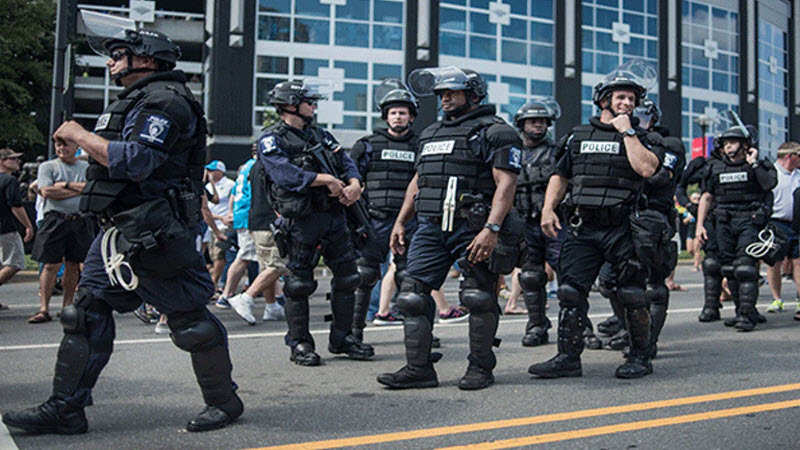

By Ayanna Gandhi
WASHINGTON D.C. – More than 300 law professors around the country signed a letter addressed to Nancy Pelosi, Kevin McCarthy, Mitch McConnell, and Charles Schumer, asking them to pass legislation to hold law enforcement accountable.
Entitled “Holding Police Accountable for Civil Rights Violations,” the letter called on Congress to “pass a pair of legislative reforms that will abolish qualified immunity and create vicarious liability for local government entities whose officers violate constitutional rights.”
While it was noted that the proposal would not solve the country’s brutality problems, but it would be the first step to get the ball rolling.
Most of the letter focuses on what the Supreme Court has done to condone these actions.
The professors start their argument by stating that “Section 1983, enacted originally in 1871 as the Ku Klux Klan Act, was intended to provide a civil remedy under federal law for persons whose constitutional rights have been violated by state actors. The law provides a vehicle for such persons to seek redress from both the officers as well as the local governments that employ them.”
However, the professors believe that the Court has “drained the life” from this law for two reasons.
They state that the first reason for their statement is because “the Court has created a defense of ‘qualified immunity’” for these officers. Qualified immunity is thanks to the requirement of proof that “the right violated is one that was “clearly established,” such that every reasonable officer would understand that the conduct amounted to a constitutional violation.”
They argue that this immunity has created an “overwhelming burden [for] plaintiffs. It often results in “one free pass,” where the officer who has violated a person’s constitutional rights is absolved of liability because there was no case on point,” adding that current laws have stripped the truthfulness and justice of the courts; the allowing of ruling without proven merit of claims has become more common and is “ensuring that no law is established.”
The professors also argue that the Court has “drained the life” from the Ku Klux Klan Act because it has, “created similarly insurmountable limits for a plaintiff who wants to sue the local government employer for an officer’s unconstitutional conduct.”
Essentially, “under Section 1983, the plaintiff must show that the wrongdoing was caused by an official policy or custom. In most cases, a plaintiff would have to demonstrate a pattern of very similar constitutional violations and show that policymakers had knowledge of such incidents and failed to address the problem.”
However, the profs notes, “the defense of qualified immunity for the individual officers, combined with the heavy burden of proving an official policy or custom in order to recover from the government employer, results in no redress for persons whose constitutional rights have been violated.”
The professors recommend that the Court should amend Section 1983 as that will ensure that individual defendants do not receive immunity and that governments are responsible for injustices committed by their police officers.
The professors acknowledge the counter-argument that “eliminating the defense will threaten to bankrupt officers for making reasonable mistakes while doing their jobs.”
But they believe that “the Supreme Court’s Fourth Amendment doctrine already recognizes that officers often must take decisive action under quickly changing circumstances, and already protects officers from liability when they make reasonable mistakes. Moreover, even if an officer is found liable, he is almost certain not to face bankruptcy.”
The authors of the letter are extremely passionate about the injustices being committed both by police and the courts.
They state that “Local government employers almost always agree to pay settlements and judgments against their officers through indemnification agreements. But, where the conduct is really egregious and/or in violation of the agency’s policy, the employer might refuse indemnification or an insurer may deny coverage, leaving the plaintiff whose rights have been violated without a remedy.”
They believe that this loophole which local governments use to protect their officers would be tied by amending Section 1983. It would not only punish unconstitutional acts, they say, but it would also make sure that when “an officer commits a truly egregious violation—and most likely would be denied indemnification— plaintiffs are still able to recover from the local government entity that gave that officer his badge and gun.”
Amending Section 1983 would, according to the authors, start the process of holding all governments liable for the brutality which their own officers commit.
To sign up for our new newsletter – Everyday Injustice – https://tinyurl.com/yyultcf9
